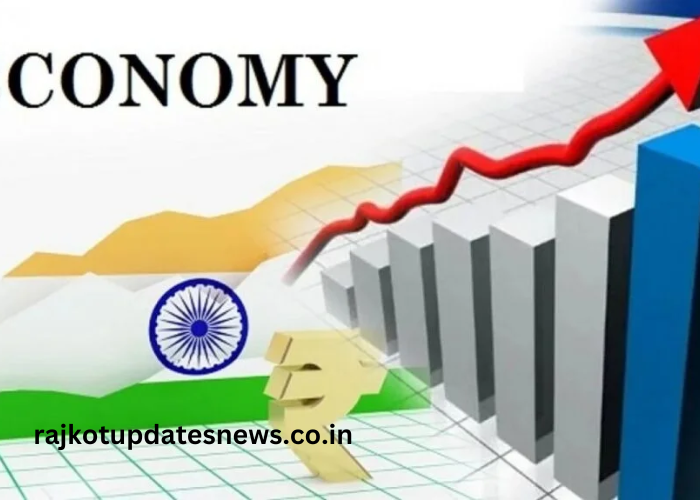
According to recent reports from Rajkot Updates News, Indian CEOs are expressing strong optimism about the country’s economic trajectory. This optimism reflects a broader confidence in India’s growth potential driven by several key factors.
As the business landscape evolves, understanding the underpinnings of this positive outlook is crucial for stakeholders across the board. This blog delves into the factors contributing to this growth expectation, the role of policy changes, and how different sectors are poised for expansion.
Key Points
- Indian CEOs show strong optimism for future economic growth.
- Significant growth is forecasted across major sectors including technology and energy.
- Economic policies and global trends are positively influencing business sentiment.
How Are Indian CEOs Shaping Economic Expectations?
Indian CEOs are at the forefront of shaping economic expectations through strategic decisions and investments. Their leadership is pivotal in driving sectoral growth and innovation.
For example, CEOs of major IT firms like Infosys and Tata Consultancy Services (TCS) are heavily investing in artificial intelligence (AI) and digital transformation technologies.
These investments are not just about keeping pace with global trends but also about positioning Indian companies as leaders in these rapidly evolving fields.
By spearheading technological advancements and expanding into new markets, these leaders are setting a positive tone for the country’s economic future.
Note: Leadership in business often influences broader economic trends. Effective CEO strategies can lead to industry-wide changes and growth.
What Are the Major Drivers of Economic Growth According to CEOs?
Indian CEOs identify several major drivers of economic growth. Technological advancements are at the forefront, with innovations in AI, machine learning, and blockchain reshaping industries.
Favorable government policies, such as those promoting ease of doing business and tax reforms like the Goods and Services Tax (GST), are also critical. Additionally, increasing consumer demand, fueled by a growing middle class and higher disposable incomes, provides a substantial boost to economic activity.
For instance, the GST has simplified the tax structure, making it easier for businesses to operate and expand.
Reminder: Keeping track of government policies and their implications can provide valuable insights into economic trends and opportunities.
How Will Policy Changes Impact Economic Growth?
Policy changes play a significant role in shaping economic growth. The implementation of the GST, for instance, has streamlined the tax system, reducing the complexity of tax compliance for businesses and fostering a more transparent economy.
Similarly, the Make in India initiative aims to enhance the country’s manufacturing capabilities and attract foreign investment by improving the ease of doing business. These policies are designed to create a more conducive environment for business operations, thereby stimulating economic growth.
Comparison Table: Policy Impact
| Policy | Expected Impact |
| GST | Simplifies tax structure, boosts business efficiency |
| Make in India | Encourages manufacturing, attracts foreign investment |
What Sectors Are Expected to Grow the Most?
Several sectors in India are anticipated to experience significant growth. The technology sector, particularly IT and AI, is expected to lead due to ongoing digital transformation.
The renewable energy sector is also poised for expansion, driven by the country’s commitment to sustainable energy solutions and reducing carbon emissions.
Additionally, the healthcare and e-commerce sectors are likely to see substantial growth as consumer preferences shift towards online services and health-conscious lifestyles.
Comparison Chart: Sector Growth Projections
| Sector | Projected Growth Rate (2024-2029) |
| Technology (IT & AI) | 15% annually |
| Renewable Energy | 20% annually |
| Healthcare | 12% annually |
| E-commerce | 18% annually |
How Are Global Trends Influencing Indian Economic Growth?
Global economic trends significantly impact India’s growth trajectory. Changes in international trade policies, such as new trade agreements or tariffs, can affect export and import dynamics, influencing overall economic performance. Additionally, global technological advancements and shifts in investment patterns play a crucial role.
For example, the rise of digital technologies and remote working trends globally has accelerated digital transformation initiatives in India, boosting growth in the technology sector.
Note: Monitoring global trends can provide valuable insights into how international factors might affect domestic economic conditions.
What Role Do Startups Play in the Economic Outlook?
Startups are increasingly becoming a driving force in India’s economic landscape. They bring innovation, disrupt traditional business models, and contribute to job creation.
Investment in startups is growing, with venture capital firms and angel investors actively seeking opportunities in this dynamic sector.
The success of startups not only adds to the economy’s vitality but also fosters a culture of entrepreneurship that drives further economic development.
How Are Indian CEOs Preparing for Economic Challenges?
Indian CEOs are adopting a range of strategies to prepare for potential economic challenges. Risk management is a priority, with many companies diversifying their portfolios and investing in technology to enhance operational efficiency.
Companies are also focusing on sustainability and resilience, incorporating strategies to mitigate the impact of economic fluctuations. For instance, businesses are increasingly using data analytics to make informed decisions and respond swiftly to market changes.
Reminder: Proactive risk management and strategic investments in technology can help businesses navigate economic uncertainties effectively.
What Are the Future Predictions for Indian Economic Growth?
Future predictions for India’s economic growth are largely positive. Analysts forecast continued growth driven by robust consumer spending, increasing foreign investment, and ongoing policy support.
However, maintaining this growth will require sustained reforms and strategic investments across key sectors. As India continues to develop its infrastructure and enhance its business environment, the economic outlook remains promising.
Conclusion
The optimistic economic outlook reported by Rajkot Updates News reflects a broader trend of confidence among Indian CEOs. With favorable policies, technological advancements, and a thriving startup ecosystem, India is well-positioned for continued growth.
Understanding these dynamics and staying informed about key trends will be crucial for businesses and investors as they navigate the evolving economic landscape.
FAQ’s
- What are the primary factors driving economic growth in India?
- Key factors include technological advancements, favorable government policies, and rising consumer demand.
- How do policy changes affect India’s economic outlook?
- Policy changes, like GST and Make in India, simplify processes and attract investments, boosting economic growth.
- Which sectors are expected to see the most growth?
- Sectors such as technology, renewable energy, and startups are projected to experience substantial growth.
- What global trends impact India’s economic growth?
- International trade policies and technological advancements are significant global trends affecting India’s economy.
- How are Indian CEOs preparing for economic challenges?
- CEOs are focusing on risk management, diversifying investments, and leveraging technology to prepare for potential challenges.


